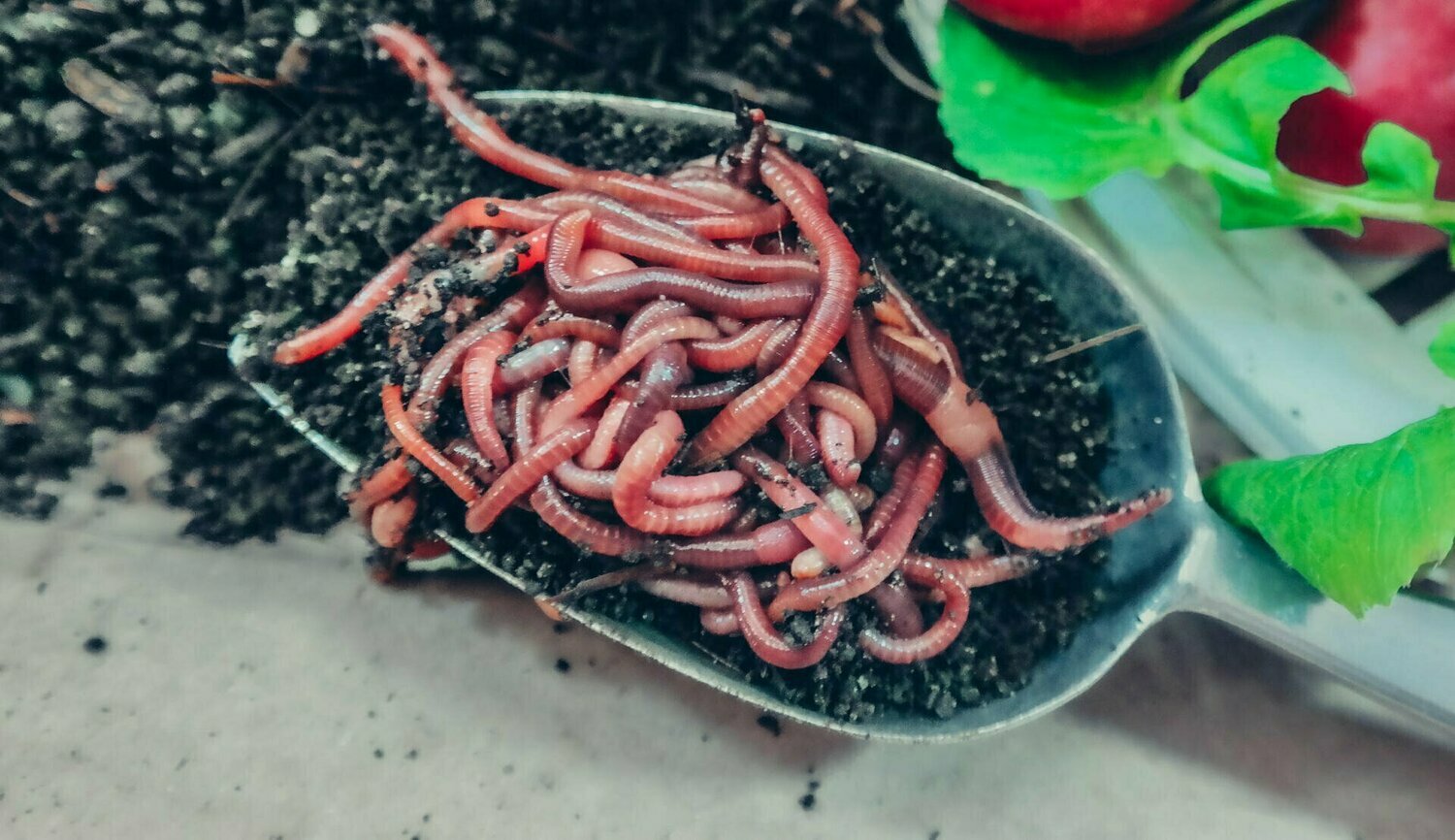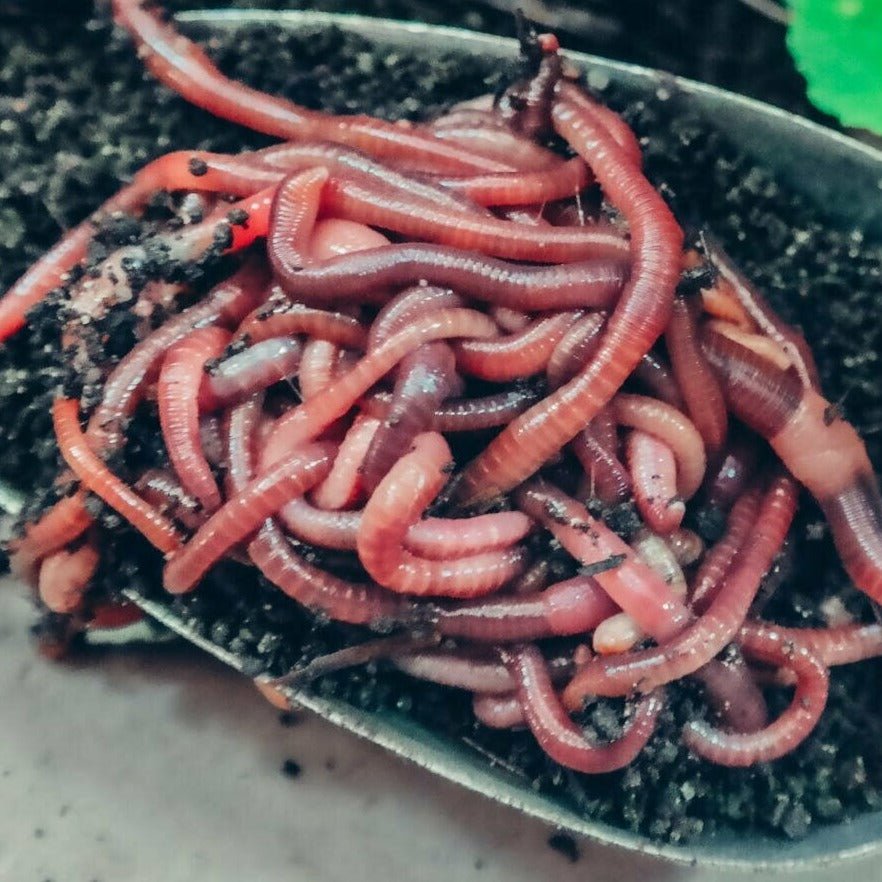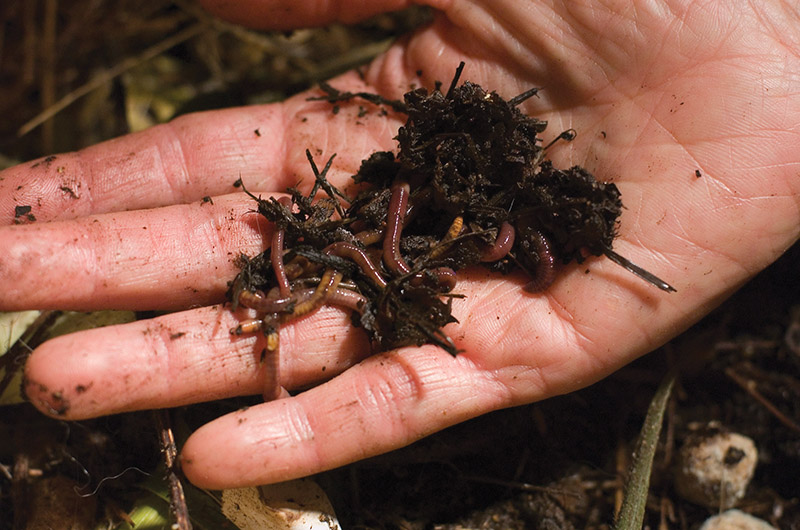Red Wiggler Worms Demystified: Opening the Tricks of Vermiculture for Greener Living and Nutrient-Rich Soil
In the realm of sustainable methods for enriching dirt high quality and advertising eco-conscious living, red wiggler worms play a crucial yet frequently neglected function. These humble creatures have the amazing ability to change natural waste right into nutrient-rich spreadings that act as a potent natural plant food. By delving into the globe of vermiculture, one can uncover a wide variety of benefits that extend much beyond standard composting techniques. Recognizing the complexities of caring for these worms, enhancing their environment, and utilizing their spreadings can lead to a greener lifestyle and much healthier soil for plants to flourish.
The Role of Red Wiggler Worms
Red Wiggler worms play a vital duty in composting systems by successfully breaking down organic issue into nutrient-rich castings. These starved eaters take in a selection of natural products, such as kitchen scraps, lawn waste, and paper products. As they feed, the worms' digestive system procedures damage down the natural matter into a fine, dark, and nutrient-dense material known as worm spreadings or vermicompost.
The spreadings generated by Red Wiggler worms are highly beneficial for soil health and plant growth. They are rich in important nutrients like potassium, nitrogen, and phosphorus, which are important for supporting healthy and balanced plant advancement. In addition, worm spreadings contain helpful microbes and enzymes that aid boost dirt framework, increase water retention, and enhance nutrient uptake by plants.
Advantages of Vermicomposting

In addition, vermicompost, the nutrient-rich final product of vermicomposting, functions as a superb natural plant food and soil conditioner. It boosts dirt structure, improves soil aeration, and boosts dirt moisture retention. These residential or commercial properties add to much healthier plants with stronger origin systems and far better resistance to illness and bugs. Vermicompost likewise enriches the soil with vital nutrients like nitrogen, potassium, and phosphorus, promoting plant development and general soil fertility.
In addition, vermicomposting assistances sustainable horticulture techniques by giving a chemical-free and natural option to artificial fertilizers. Red Wiggler Worms. This eco-friendly approach not just enriches the soil yet likewise assists reduce reliance on dangerous chemicals, promoting a greener and extra sustainable means of horticulture
Setting Up a Worm Container
When developing a worm container for vermicomposting, correct setup is crucial to make sure the success of the composting process. The primary step in establishing up a worm container is selecting an appropriate container. This can be a plastic bin or wooden box that gives adequate area for the worms to relocate around and has correct water drainage holes to stop waterlogging. Next, a bedding product such as shredded paper, cardboard, or coconut coir should be contributed to the bin. This bed linens provides a comfortable environment for the worms and assists maintain dampness levels.
After including the bed linens, introduce the red wiggler worms to the container. It is advised to begin with a tiny number of worms and gradually raise as they multiply. The worms should after that be given with food scraps such as vegetables and fruit peels, coffee grounds, and eggshells. It is important to prevent including meat, dairy products, oily, or salty foods to avoid bring in bugs and producing unpleasant odors.
Routinely monitor the moisture degrees and temperature in the worm bin to make certain optimum conditions for the worms. With proper setup and upkeep, the worm container will properly convert natural waste right into nutrient-rich compost for your plants and garden.
Harvesting Worm Castings
To effectively collect nutrient-rich worm castings from your vermicomposting system, a methodical harvesting technique is crucial. When it comes time to collect the worm castings, there are a couple of key steps to comply with to make sure an effective procedure.

Troubleshooting Common Issues
Recognizing and resolving common difficulties that may occur throughout the vermicomposting procedure is vital for preserving a effective and healthy and balanced worm container. Including excess food scraps can lead to a build-up of moisture and acidity in the worm bin, possibly damaging the worms. Another concern is unpleasant smells emanating from the worm bin.
In addition, if the worm population is decreasing or the worms appear unhealthy, it could be because of environmental stressors such as severe temperature levels or pH degrees. Monitoring these aspects and making essential changes is crucial for the health of the worms. By troubleshooting these usual concerns immediately, vermicomposters can ensure a successful and smooth vermicomposting process while keeping a flourishing worm populace.

Verdict
Finally, red wiggler worms play an important role in vermiculture by breaking down organic matter into nutrient-rich dirt. The benefits of vermiculture include greener living and boosted dirt high quality. Setting up a worm bin is crucial for successful vermiculture, and gathering worm castings offers beneficial garden compost for gardening. By recognizing and troubleshooting common problems, individuals can unlock the tricks of vermiculture for sustainable living and healthier dirt.
As they feed, the worms' digestion procedures break down the organic issue into a fine, dark, and nutrient-dense product known as worm spreadings or vermicompost.
The spreadings produced by Red Wiggler worms are very valuable for dirt health and wellness and plant growth. Including excess food scraps can lead to a build-up of moisture and acidity in the worm container, possibly hurting the worms.Additionally, if the read worm populace is declining or the worms appear harmful, it might be due to ecological stress factors such as extreme temperatures or pH levels. Establishing up a worm container is necessary for successful vermiculture, and collecting worm castings gives beneficial garden compost for gardening.
 Kel Mitchell Then & Now!
Kel Mitchell Then & Now! Judd Nelson Then & Now!
Judd Nelson Then & Now! Tatyana Ali Then & Now!
Tatyana Ali Then & Now! Richard Thomas Then & Now!
Richard Thomas Then & Now! Traci Lords Then & Now!
Traci Lords Then & Now!